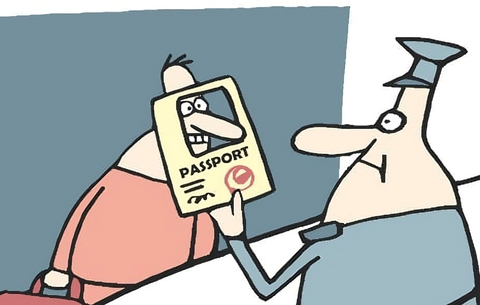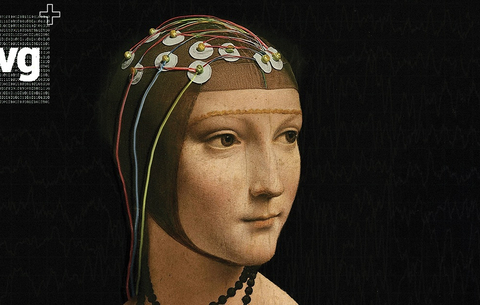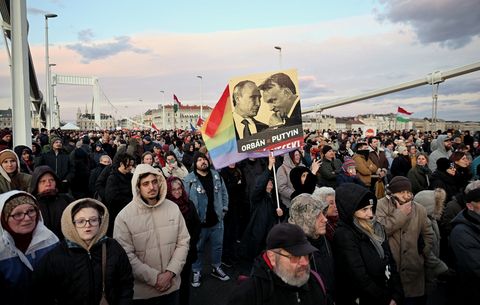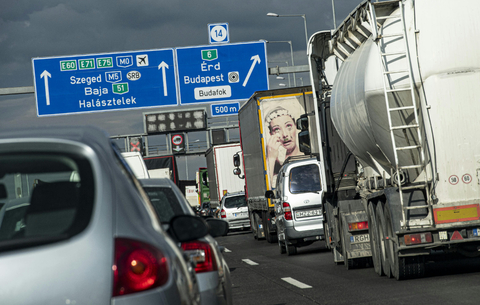Budapest on Budapest
The people of Budapest worry less about traffic jams, car emissions or crowding than about tramps, the homeless and dog dirt, a new survey conducted by Median for HVG has shown.
Budapesters give their city on average a low four out of five. Two thirds of respondents gave their city a four or a five. Furthermore, over the past six months, the number of people who feel their city is developing quickly has increased significantly. In July, three in ten thought things were moving quickly, compared to just a fifth in January.
Part of the reason for this sense of well-being is that Budapesters are doing better than their provincial cousins. The proportion of people in the city who left education before finishing secondary school is half the Hungarian average. The number of people with high school and university diplomas in the city is much higher than elsewhere. In consequence, Budapesters are much better off than the national average. Income per head for the average Hungarian family is HUF66,000, compared to HUF95,000 in Budapest. In the capital, even poor families have higher incomes: Median's data shows that average income per head in the bottom quartile nationally is HUF32,000 a head, compared to HUF51,000 in the capital. Some 40 per cent of respondents said they liked Budapest because unemployment was lower than elsewhere in the country.
Respondents who did not like Budapest were asked to list those factors that nonetheless appealed about the city. They gave spontaneous answers, not chosen from a list. Most frequently mentioned as positives were the city's atmosphere and the generous range of entertainment and shopping facilities. When offered a list of positive factors, eight out of 10 chose the city's location and its views. More than two thirds of respondents liked Budapest for the number of schools, theatres and restaurants, and almost the same number mentioned the fact that they did not need to travel far to see a doctor or obtain medicine. Half the respondents liked the fact that there were many bars and events in the city. Almost half of respondents like the spread of selective rubbish collection, the introduction of new buses and trams and the building of the fourth metro line. Every fourth respondent mentioned the human side of the
city: they liked the fact that they could meet a wide range of people, making it easier to find friends or a partner. Modes of travel have changed substantially over the past six months. This is not a seasonal change, but the result of intensive repair works slowing traffic along the city's most important transport links. In July, three quarters of Budapesters were travelling by car, and three tenths were cycling. Both numbers are significant increases compared to January, and includes people who had never driven or cycled before.
But the spectacle of the city is most pleasing from afar, according to residents, who are far less enamoured of the upfront picture. Most respondents were irritated by dirt, by jams, by the state of the roads and by the quality of public transport in the city. When choosing from a list, respondents complained about tramps and homeless people living in underpasses and public spaces and about dog dirt on pavements and in the parks. Otherwise, transport and the difficulties of driving were the greatest disappointment for Budapesters. More than half were unhappy with air quality in the city, and almost half complained about the state of the roads and pavements. Some 42 per cent worried that there was too much building and that green spaces were disappearing, and 35 per cent disliked the public transport system and the state of the city's public transport fleet. Others worry about parking, about getting in from the suburbs and about noise levels. The elderly are more worried about noise and dog dirt, and they are also unhappy with the city's growing tolerance of homosexuality. The young and middle aged are more concerned about the state of the roads and pavements and about the difficulty of parking. The young are most worried about poverty: they were far more likely to express concern about homelessness and about the differences in the quality of life between the city's wealthier and poorer neighbourhoods.
ESZTER BAKONYI









